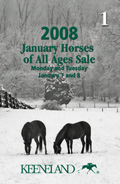 In 2007, Keeneland’s four Thoroughbred sales commanded a record cumulative gross of more than $814 million. The hot pace continued with the 2008 Keeneland January Sale that concluded on Sunday with a gross of $70.4 million.
In 2007, Keeneland’s four Thoroughbred sales commanded a record cumulative gross of more than $814 million. The hot pace continued with the 2008 Keeneland January Sale that concluded on Sunday with a gross of $70.4 million.
Gross receipts were down just 3.3 percent from last year’s record of $72,868,200, despite the fact that 369 fewer horses were sold this year. This year’s average price of $47,184 reflected a 20 percent increase over $39,134 in 2007, while the median of $17,000 rose 13 percent from the $15,000 posted last year. A total of 1,493 horses were sold in 2008 compared to 1,862 in 2007.
Four horses topped the $1 million mark – the most since January 2000, when six million-dollar horses were sold. The highest price came on opening day when Southern Equine Stables paid $2.7 million for Irish Cherry, in foal to Ghostzapper. The dam of Grade 1 winners Spun Sugar and Daaher was consigned by John Sikura’s Hill ‘n’ Dale Sales Agency.
The sale also featured the complete dispersal from the estate of noted owner and breeder Cynthia Phipps, who died last fall. The dispersal brought $3,052,500 for 14 horses, highlighted by the sale of Palais Versailles for $625,000 to WinStar Farm and her dam, the stakes-winning Versailles Treaty, for $475,000 to Gaines-Gentry, agent.
“We are very pleased with the results given the variability of January sales,” said Geoffrey Russell, Keeneland director of sales. “The sale unfolded as anticipated. Buyers were very discriminating in their purchases in a continuation of what we saw in November.
“Make no mistake,” Russell added, “record sales last year were built on the weakness of the U.S. dollar, which drove foreign spending. If not for that, we would have experienced a major market correction. One only need look at the recent downturn in European sales, which did not have the benefit of the favorable exchange rate. It will happen here too, unless breeders make some hard decisions.”
Russell pointed to significant increases in Keeneland’s annual sale days (27 in 2002 versus 39 in 2007) and the size of its September Yearling Sale catalog (an increase of 1,200 yearlings since 2002), as indicators of serious overproduction of the commercial market.
“Our sales have expanded dramatically over the past five years, yet the size of the North American foal crop (37,900 in 2001 versus 37,300 in 2006) has remained virtually the same,” he noted. “That shows there are too many non-commercial horses being offered.
The January Sale was the first to conduct testing for exogenous anabolic steroids. Under the policy, buyers can request testing of their weanling and yearling purchases. Only one request was made during sale.
